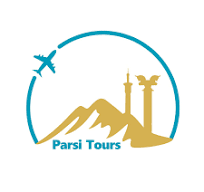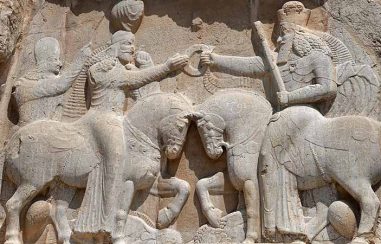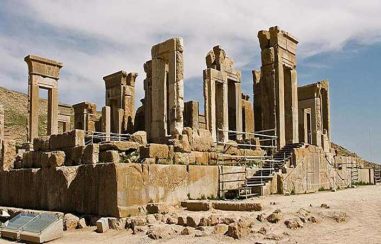Are you considering a trip to Iran? Before you pack your bags and embark on your journey, you must be well-informed about Iran travel restrictions and regulations. Iran has a rich history, stunning landscapes, and a vibrant culture, but it’s also a nation with specific guidelines that travelers must adhere to. Here in Parsi Tours, Iran travel agency, we explore the top 15 must-know Iran travel restrictions for your visit to Iran.
1. Visa and Entry
Iran travel restrictions are a multifaceted aspect that demands your attention even before setting foot in the country. It’s crucial to understand visa requirements for different nationalities, ensuring a smooth and enjoyable journey while adhering to your embassy’s Iran Travel Advisory. Depending on your citizenship, the application process and necessary documentation may vary. Iran offers a range of visas catering to various travel purposes. Whether you’re a tourist, a business traveler, or simply passing through, there’s a visa category tailored to your needs. The application process entails submitting the requisite forms and documents. Keep track of processing timelines to ensure your documents are in order before your journey commences.
2. Restricted Areas
Certain regions in Iran require special entry permits due to security considerations, adding extra caution to Iran travel restrictions. These regions might include border areas, military zones, and sensitive locations. Research and identify these areas in advance, and if you plan to explore them, obtain the necessary permits to ensure a hassle-free journey. Safety should always be a priority when traveling. Stay informed about current security conditions and follow local advice. Keep abreast of any travel advisories issued by your government. Remember that safety measures are implemented to ensure travelers and locals have a secure experience.
3. Dress Code

Dress Code in Iran
Iran travel restrictions encompass a range of cultural and religious aspects, among which the dress code stands out prominently. Dressing modestly is a requirement and a mark of respect for local customs. Women should wear loose-fitting clothing that covers the arms and legs. In some parts of cities, women wear headscarves while others don’t. However, it’s advisable always to carry or wear a headscarf or shawl to ensure this. When visiting mosques, a chador is provided to you at the entrance to enter the mosque with Islamic attire coverage. Men are likewise expected to choose attire that aligns with conservative norms. Adhering to Iran’s dress code by observing locals enhances your experience and interactions while traveling in this captivating country.
4. Cultural Etiquette
Engaging with Iranians in a culturally sensitive manner enhances your experience. Begin with the customary greeting “Salam,” coupled with a warm smile, a gesture that transcends language barriers. Engaging in conversations centered around family and well-being demonstrates genuine interest and respect. While socializing, it’s advisable to avoid discussions on sensitive subjects such as politics or religion, as they can be sensitive topics. As emphasized in this Iran travel restrictions, approaching social encounters with respect amplifies your understanding of Iran’s vibrant culture and warm-hearted people.
5. Currency Regulations
Iran travel restrictions encompass a range of practical considerations, and understanding the local currency landscape is undoubtedly a crucial aspect. The Iranian Rial (IRR) is the official currency. When traveling to Iran, please familiarize yourself with the local currency and its denominations. A notable aspect of Iran’s travel restrictions is that every traveler can carry a maximum of 10,000 euros in cash upon entry into the country. Exchange your money at authorized currency exchange offices or banks for the best rates. Also, in Iran, most international credit cards, including Visa and Mastercard, are not widely accepted due to financial sanctions and restrictions. It’s essential to be prepared with cash or alternative payment methods when traveling to the country.
6. Communication and Internet Access
In Iran, communication and internet access can be subject to restrictions. Social media platforms and messaging apps like Facebook, WhatsApp and Instagram might be inaccessible, requiring a Virtual Private Network (VPN) to access them. The government’s internet censorship can impact browsing speed and access to specific websites. While internet cafes and Wi-Fi are available, connectivity might still be uneven. Due to Iran travel restrictions, travelers must Stay informed about these challenges and have a good VPN to maintain contact with loved ones back home while in the country.
7. Health Precautions
Before traveling to Iran, it’s recommended to check if any vaccinations are required or recommended. Health Precautions became vital to Iran travel restrictions, particularly after the pandemic. Following the National Aviation Organization’s guidelines, strict measures are in place to curb COVID-19 transmission. Passengers above 12, regardless of their citizenship, must provide evidence of receiving both doses of the COVID-19 vaccine, with a 14-day interval since the final dose. Alternatively, non-vaccinated individuals can enter Iran by presenting a negative PCR test taken within 72 hours before their flight. English documentation is required for both. For entry to Iran, check IATA regulations regarding vaccination before your flight to Iran.
8. Travel Insurance
When traveling to Iran, understanding the importance of travel insurance in relation to Iran travel restrictions is crucial.Travel insurance is your safety net in case of unforeseen circumstances. From medical emergencies to trip cancellations, having comprehensive travel insurance ensures peace of mind throughout your journey. Comprehensive travel insurance holds immense importance for any traveler visiting Iran. Iran’s unique cultural landscape and unfamiliar medical systems emphasize the necessity of coverage that encompasses medical expenses, emergency medical evacuation, trip interruptions, and more. It ensures that you can fully immerse yourself in the experience without worrying about unforeseen events, allowing you to focus on exploring and enjoying your time in this captivating country.
9. Transportation and Accessibility

Transportation and Accessibility
Iran boasts an extensive public transportation network, including buses, trains and other modes of travel. This interconnected system facilitates convenient movement across cities and regions, offering a budget-friendly and efficient way to explore the country. In addition to traditional modes of transportation, you can utilize apps like Snapp and Tapsi, which function similarly to Uber, providing convenient ride services in major cities of Iran. While Iran’s public transportation network is robust, some regions might pose limitations in terms of accessibility. Remote or less-developed areas could have fewer transportation options, requiring careful planning. In such cases, private tours or alternative transportation methods might be preferable.
10. Photography Permissions
Iran’s stunning landscapes are a photographer’s dream. Capture this beautiful nation’s essence while adhering to Iran travel restrictions that respect the privacy and sanctity of specific sites. Maintaining a heightened awareness of areas where photography could be restricted or entirely prohibited during your travel to Iran is essential. These areas often hold cultural, historical, or security significance. Prioritize obtaining permissions when needed to avoid any legal complications. By seeking and obtaining proper authorization, demonstrate a considerate attitude towards the local regulations and cultural sensitivities and ensure a positive and enriching travel experience.
11. Alcohol consumption
Consumption of Alcohol is strictly prohibited in Iran, in line with Iran travel restrictions and adherence to Islamic laws. This prohibition extends to locals and visitors, regardless of nationality or religious beliefs. It’s important to note that alcohol is neither available for purchase nor served openly in public places, including restaurants and hotels. Understanding and respecting this cultural norm is essential when traveling to Iran. Avoid buying alcoholic beverages from unauthorized sellers, as they could potentially endanger your safety and pose a severe risk to your well-being. Instead of alcoholic beverages, you can explore a variety of traditional non-alcoholic drinks and immerse yourself in the country’s rich culinary and cultural experiences.
12. Non-Halal Foods
Halal foods are those that conform to Islamic dietary laws and regulations. The term “halal” translates to “permissible” in Arabic. In Iran, a predominantly Muslim country, the emphasis on halal extends beyond individual dietary choices. The government enforces strict regulations to ensure that all foods consumed locally and available to travelers meet the halal criteria. This commitment to halal principles is deeply rooted in religious beliefs and cultural values. As part of Iran travel restrictions, travelers should know that pork and pork products are strictly forbidden. Travelers should also be cautious with bringing in large quantities of non-halal meats or other products, as customs regulations may restrict such items.
13. Environmental Awareness
Environmental consciousness is a significant aspect of responsible travel. The preservation of Iran’s breathtaking natural beauty relies on adopting eco-friendly practices. Travelers are encouraged to minimize their environmental footprint by adhering to waste disposal guidelines and practicing responsible tourism. This practice entails disposing of waste properly, recycling whenever possible, and respecting delicate ecosystems. Engaging in sustainable behaviors and Being mindful of the impact of your actions on Iran’s ecology not only honors its environmental legacy but guarantees that upcoming generations can enjoy the same awe-inspiring landscapes.
14. Local Laws and Customs
When traveling to Iran, adhering to the country’s local laws and customs is a fundamental aspect of ensuring a smooth and respectful experience. Iran’s unique blend of culture and religion shapes its societal norms, and understanding and respecting these is paramount. As part of the Iran travel restrictions, In addition to refraining from consuming alcohol, wearing appropriate attire and avoiding prohibited foods, visitors should be mindful of other Islamic laws, such as refraining from public displays of affection. Especially in smaller towns, these regulations are adhered to with greater seriousness.
15. Departure Procedures

Departure Procedures
Iran travel restrictions encompass various guidelines for departing travelers. Handwoven carpets of up to 24 square meters are allowed for departure, while valuable carpets with cultural heritage significance are prohibited. Travelers can take out a maximum of 10 kilograms of pistachios and 100 grams of saffron per passport. Cash up to $5,000 or equivalent in other currencies is allowed, and personal jewelry weighing up to 150 grams of various gold items is permissible. Adhering to these guidelines ensures a smooth and compliant departure process from Iran while respecting its cultural heritage and regulations.
Conclusion
Adhering to your embassy’s Iran Travel Advisory guidelines and understanding the Iran travel restrictions is essential for a safe and respectful journey. Navigating the cultural nuances, dress codes, and local laws enriches your experience while avoiding unnecessary complications. By following these recommendations, you can make the most of your time in Iran while contributing to a positive and harmonious travel experience.



